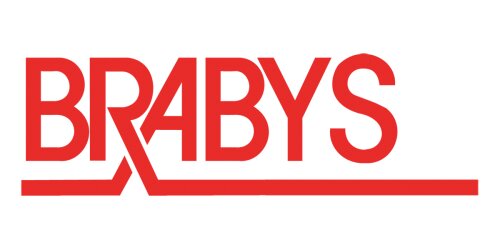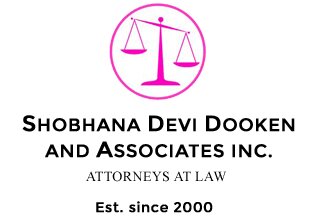Best Natural Resources Lawyers in Durban
Share your needs with us, get contacted by law firms.
Free. Takes 2 min.
List of the best lawyers in Durban, South Africa
About Natural Resources Law in Durban, South Africa
Durban, one of South Africa's largest cities, is blessed with abundant natural resources, including minerals, water bodies, forests, and a biodiverse coastline. Natural resources law in Durban encompasses various aspects of the use, management, and conservation of these resources. This legal area is governed by both national laws, like the Mineral and Petroleum Resources Development Act, and provincial legislation specific to the KwaZulu-Natal region. The aim is to balance resource utilization with environmental protection, community rights, and sustainable development.
Why You May Need a Lawyer
If you're involved in activities that impact the natural resources in Durban, such as mining, water use, environmental management, or land usage, you may require legal assistance. Here are some common situations where a lawyer could be helpful:
- Acquiring licenses or permits for natural resource exploitation.
- Dealing with environmental impact assessments and compliance issues.
- Resolving disputes over land use or resource ownership.
- Addressing violations of environmental regulations.
- Negotiating contracts and agreements related to resource management.
- Litigation or defending against claims regarding resource exploitation.
- Navigating indigenous community rights and consultations.
Local Laws Overview
Natural resources law in Durban is primarily guided by the national legal framework, customized to align with regional needs. Key aspects include:
- Minerals and Mining: Regulated under the Mineral and Petroleum Resources Development Act, focusing on equitable access and sustainable development.
- Water Resources: Governed by the National Water Act, emphasizing integrated water resource management.
- Environmental Protection: The National Environmental Management Act guides planning and development to minimize environmental harm.
- Land Use and Conservation: Local bylaws complement national and provincial frameworks to manage protected areas and urban development.
- Community Rights: Recognition of traditional land access rights requires consultation and benefit-sharing arrangements.
Frequently Asked Questions
What are the main legal regulations governing natural resources in Durban?
The main regulations include the Mineral and Petroleum Resources Development Act, the National Environmental Management Act, and local bylaws specific to Durban and the KwaZulu-Natal province.
Do I need a permit to extract water for agricultural use?
Yes, under the National Water Act, any significant water use requires a water use license, which is subject to assessment and approval by the relevant authorities.
How are mining rights issued in Durban?
Mining rights are issued by the national Department of Mineral Resources and Energy, following a comprehensive application and environmental assessment process.
Can local communities claim ownership of natural resources?
While natural resources are generally owned by the state, communities with traditional ties to the land may have recognized rights that require consultation and benefit-sharing.
What should I do if I'm accused of violating environmental laws?
Consult with a legal expert in environmental law to assess your situation and explore options for compliance, defense, or remediation.
How can I ensure my development project is environmentally compliant?
Engage with environmental consultants and legal advisors early in your project’s planning stages to navigate environmental impact assessments and obtain necessary approvals.
Are there specific laws for coastal resource management in Durban?
Yes, coastal management is regulated under the Integrated Coastal Management Act, which governs activities impacting coastal areas and marine resources.
How do I resolve disputes over land use or resource access?
Dispute resolution can involve negotiation, mediation, or litigation based on the specifics of the conflict and the stakeholders involved.
What role does local government play in natural resources law?
Local governments implement national policies, enforce local bylaws, and oversee community and municipal planning related to resource use.
Where can I find legal help for natural resources issues?
Seek assistance from specialized environmental lawyers, law firms, or organizations experienced in natural resources law in Durban and KwaZulu-Natal.
Additional Resources
For additional information and support, consider reaching out to the following resources:
- Department of Mineral Resources and Energy: A primary national authority on mineral and energy resources.
- KwaZulu-Natal Department of Economic Development, Tourism, and Environmental Affairs: Oversees regional environmental management.
- eThekwini Municipality Environmental Planning and Climate Protection Department: Manages local environmental and conservation issues.
- South African National Biodiversity Institute (SANBI): Provides research and guidelines on biodiversity conservation.
- Legal Resources Centre: Offers legal services and advocacy for environmental and community rights.
Next Steps
If you need legal assistance with natural resources issues, consider the following steps:
- Identify the specific legal issue you are facing, such as permitting, compliance, or dispute resolution.
- Gather relevant documents and information related to your case.
- Consult with an attorney specializing in natural resources or environmental law to evaluate your situation.
- Explore available legal options, from negotiations and settlements to litigation.
- Ensure ongoing compliance and monitoring if your issue involves environmental or resource management regulations.
Lawzana helps you find the best lawyers and law firms in Durban through a curated and pre-screened list of qualified legal professionals. Our platform offers rankings and detailed profiles of attorneys and law firms, allowing you to compare based on practice areas, including Natural Resources, experience, and client feedback.
Each profile includes a description of the firm's areas of practice, client reviews, team members and partners, year of establishment, spoken languages, office locations, contact information, social media presence, and any published articles or resources. Most firms on our platform speak English and are experienced in both local and international legal matters.
Get a quote from top-rated law firms in Durban, South Africa — quickly, securely, and without unnecessary hassle.
Disclaimer:
The information provided on this page is for general informational purposes only and does not constitute legal advice. While we strive to ensure the accuracy and relevance of the content, legal information may change over time, and interpretations of the law can vary. You should always consult with a qualified legal professional for advice specific to your situation.
We disclaim all liability for actions taken or not taken based on the content of this page. If you believe any information is incorrect or outdated, please contact us, and we will review and update it where appropriate.
















